Researchers expose 'critical vulnerabilities' in SSD encryption
Hardware-based encryption far less secure than presumed with attackers able to access data without passwords


Self-encrypting solid state drives (SSDs) share a host of structural vulnerabilities - irrespective of manufacturer - that can allow an attacker to access data without any keys or passwords, according to new research from Radboud University in the Netherlands.
Against received wisdom, devices that perform encryption with the SSD itself through ATA security and TCG Opal encryption methods, rather than via software, are vulnerable to attack, the researchers write.
Hardware-based full-disk encryption was devised as a more secure alternative software-based methods after it emerged there were a number of inherent weaknesses with the latter, namely that encryption keys are present in RAM at all times.
Often considered a natural successor to software encryption, according to researchers Carlo Meijer and Bernard van Gastel, SSDs with this capability typically performing encryption via an AES coprocessor, and keep encryption keys on the device. The SSD's firmware then takes care of key management.
After considering a handful of possible flaws in hardware-based full-disk encryption, or self-encrypting drives (SEDs), the pair reverse-engineered the firmware of a sample of SSDs and tried to expose these vulnerabilities.
They learned that hackers can launch a range of attacks, from seizing full control of the CPU to corrupting memory - outlining their findings in a paper titled 'self-encrypting deception: weakness in the encryption of solid state drives (SSDs)'.
There are a host of exploits that can be used, such as cracking master passwords, set by the manufacturer as a factory default. These are routinely found in many SSDs, and if obtained by an attacker could allow them to bypass any custom password set by a user.
Get the ITPro daily newsletter
Sign up today and you will receive a free copy of our Future Focus 2025 report - the leading guidance on AI, cybersecurity and other IT challenges as per 700+ senior executives
"The analysis uncovers a pattern of critical issues across vendors," Meijer and van Gastel wrote, outlining how in several models it is possible to bypass encryption entirely and recover data in full without the need for passwords or keys.
The paper found that several SSDs could be fully compromised, including Crucial's MX100, MX200, MX300 as well as Samsung's T3 and T5 hard drives. Samsung's 840 EVO and 850 EVO SSDs proved a shade more secure, meanwhile, but could still be manipulated.
Meanwhile, delegation of encryption by software to the physical drive itself, if the drive supports TCG Opal, paints a grim picture if the software encryption is bypassed by default, the paper continued.
This is the case with encryption software as BitLocker, which is built into Microsoft Windows. BitLocker opts to default to hardware-based encryption capabilities if this is detected, meaning many users who consciously opted for software encryption are unaware they are using hardware-based encryption - exposing them to the same threats.
The researchers also outlined a case study in which an attacker would seek to breach a locked Crucial MX300 drive with encryption via TCG Opal.
First, an attacker would install a modified firmware that includes read/write capabilities, and then, if encryption is performed via TCG Opal, would write executable code to bypass several layers of security, and access the data.
"The results presented in this paper show that one should not rely solely on hardware encryption as offered by SSDs for confidentiality," the paper recommended.
"We recommend users that depend on hardware encryption implemented in SSDs to employ also a software full-disk encryption solution, preferably an open-source and audited one.
"A pattern of critical issues across vendors indicates that the issues are not incidental but structural, and that we should critically assess whether this process of standards engineering actually benefits security, and if not, how it can be improved."

Keumars Afifi-Sabet is a writer and editor that specialises in public sector, cyber security, and cloud computing. He first joined ITPro as a staff writer in April 2018 and eventually became its Features Editor. Although a regular contributor to other tech sites in the past, these days you will find Keumars on LiveScience, where he runs its Technology section.
-
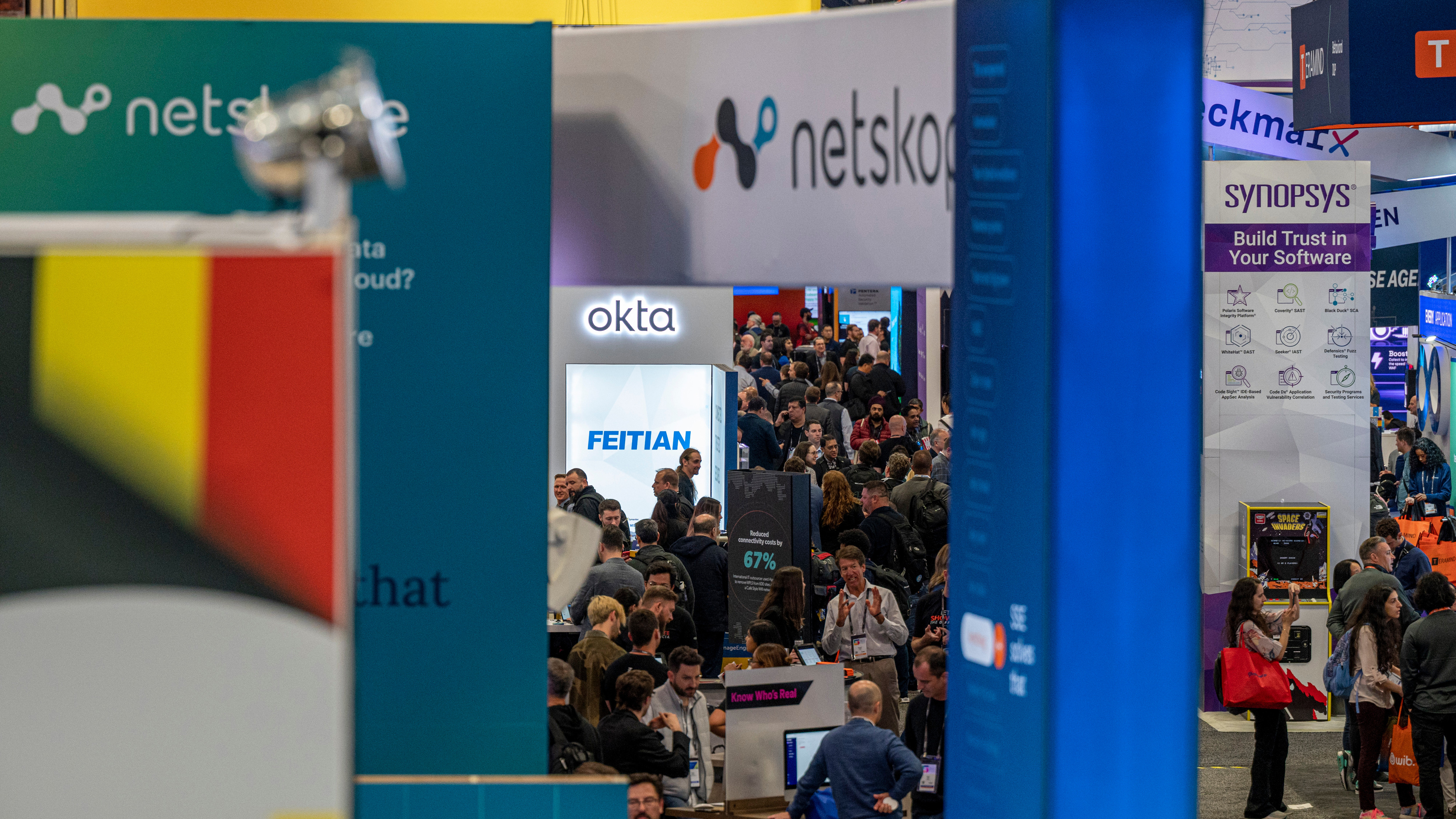 What to look out for at RSAC Conference 2025
What to look out for at RSAC Conference 2025Analysis Convincing attendees that AI can revolutionize security will be the first point of order at next week’s RSA Conference – but traditional threats will be a constant undercurrent
By Rory Bathgate
-
 Ransomware attacks are rising — but quiet payouts could mean there's more than actually reported
Ransomware attacks are rising — but quiet payouts could mean there's more than actually reportedNews Ransomware attacks continue to climb, but they may be even higher than official figures show as companies choose to quietly pay to make such incidents go away.
By Nicole Kobie
-
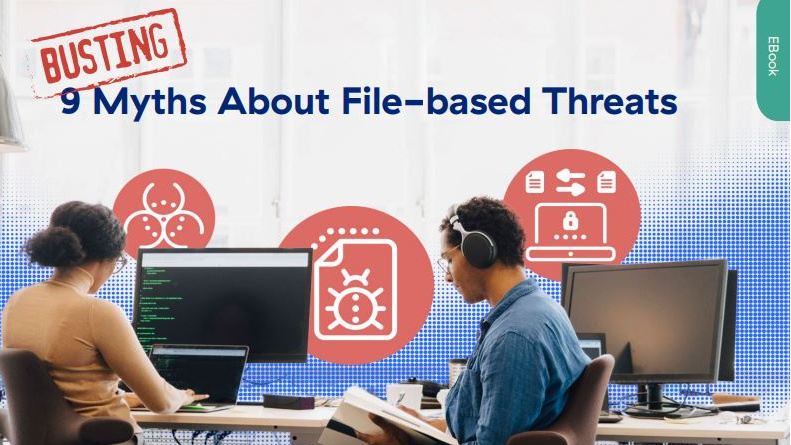 Busting nine myths about file-based threats
Busting nine myths about file-based threatsWhitepaper Distinguish the difference between fact and fiction when it comes to preventing file-based threats
By ITPro
-
 The Total Economic Impact™ of the Intel vPro® Platform as an endpoint standard
The Total Economic Impact™ of the Intel vPro® Platform as an endpoint standardWhitepaper Cost savings and business benefits enabled by the Intel vPro® Platform as an endpotnt standard
By ITPro
-
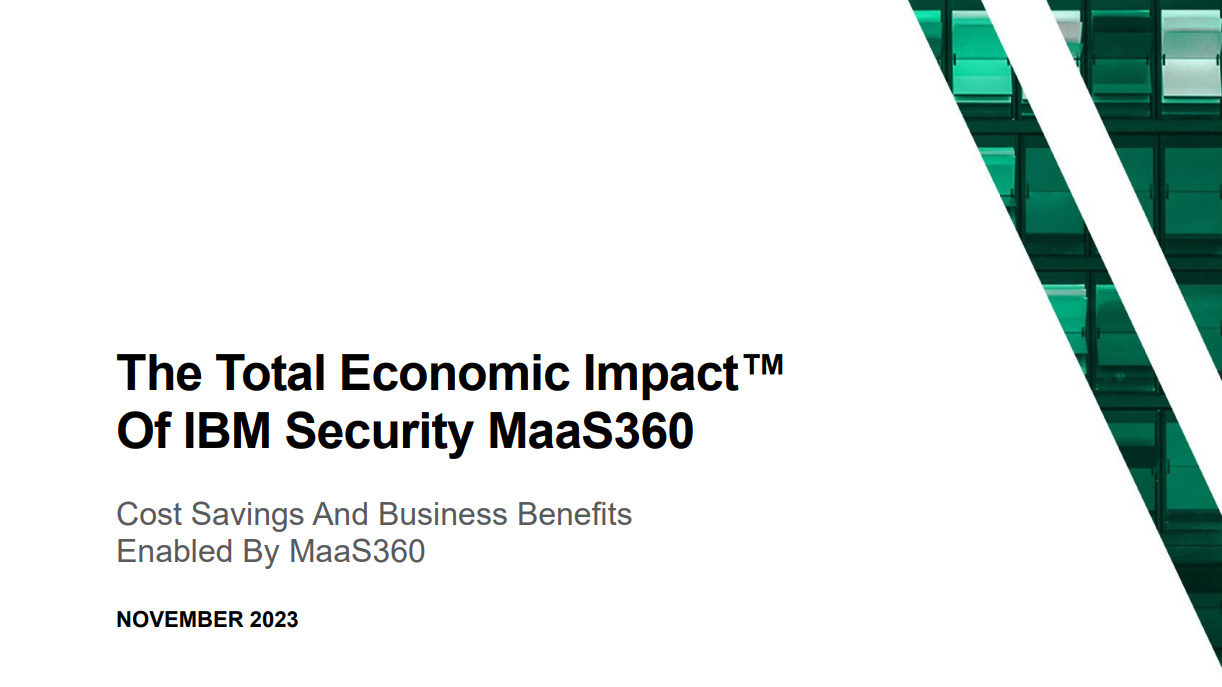 The Total Economic Impact™ of IBM Security MaaS360 with Watson
The Total Economic Impact™ of IBM Security MaaS360 with WatsonWhitepaper Cost savings and business benefits enabled by MaaS360
By ITPro
-
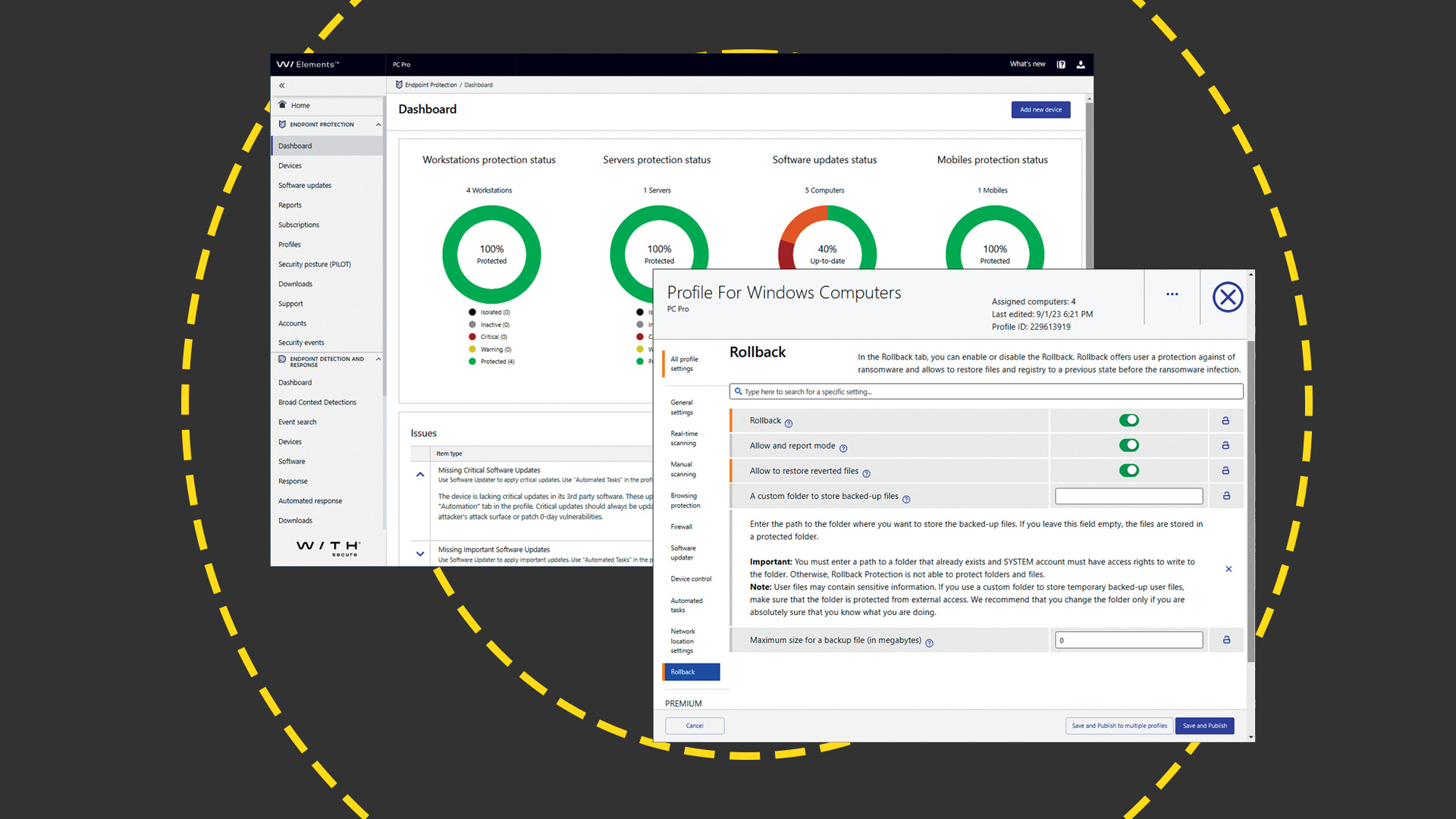 WithSecure Elements EPP and EDR review: Endpoint protection on a plate
WithSecure Elements EPP and EDR review: Endpoint protection on a plateReviews An affordable cloud-managed solution with smart automated remediation services
By Dave Mitchell
-
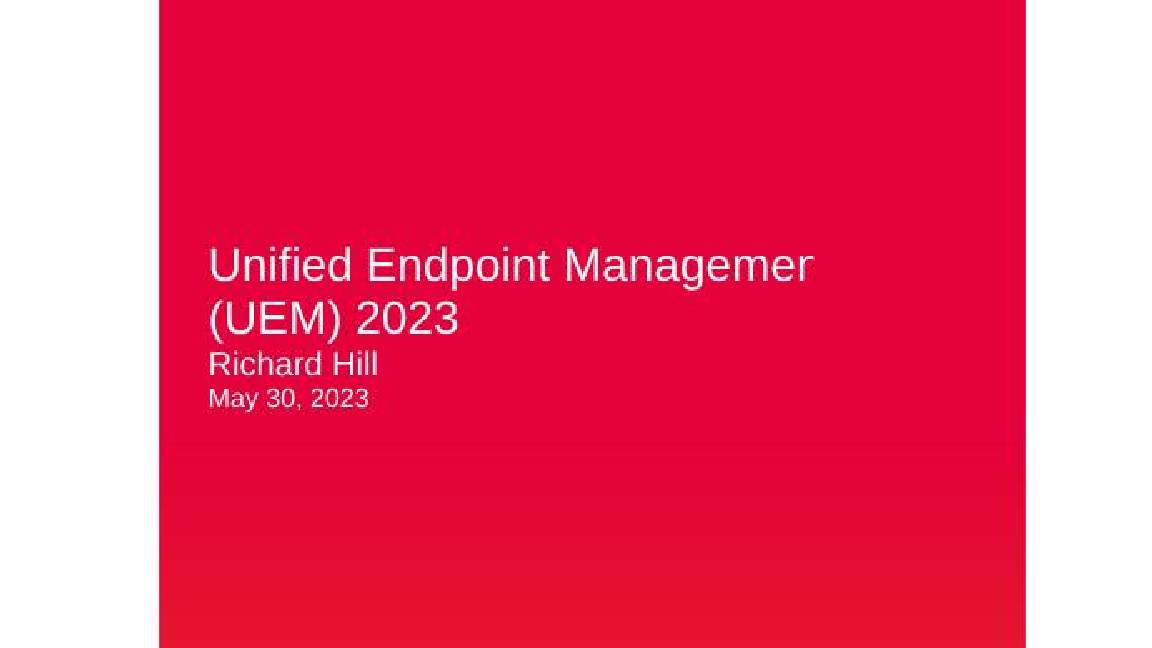 KuppingerCole leadership compass report - Unified endpoint management (UEM) 2023
KuppingerCole leadership compass report - Unified endpoint management (UEM) 2023Whitepaper Get an updated overview of vendors and their product offerings in the UEM market.
By ITPro
-
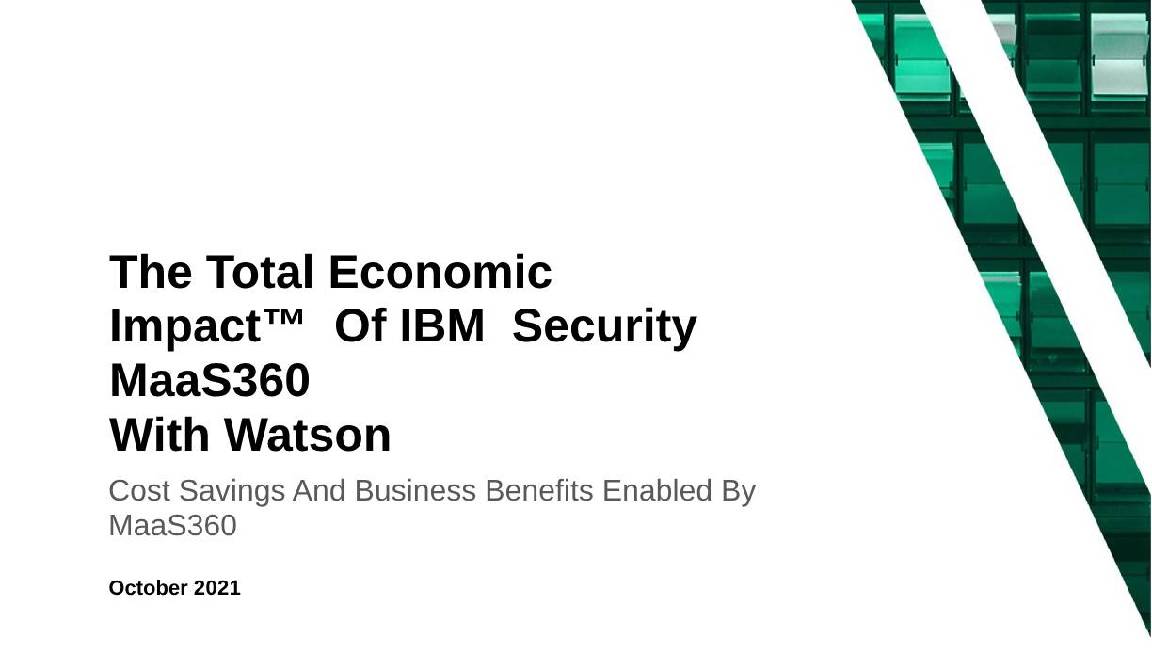 The Total Economic Impact™ of IBM Security MaaS360 with Watson
The Total Economic Impact™ of IBM Security MaaS360 with WatsonWhitepaper Get a framework to evaluate the potential financial impact of the MaaS360 on your organization
By ITPro
-
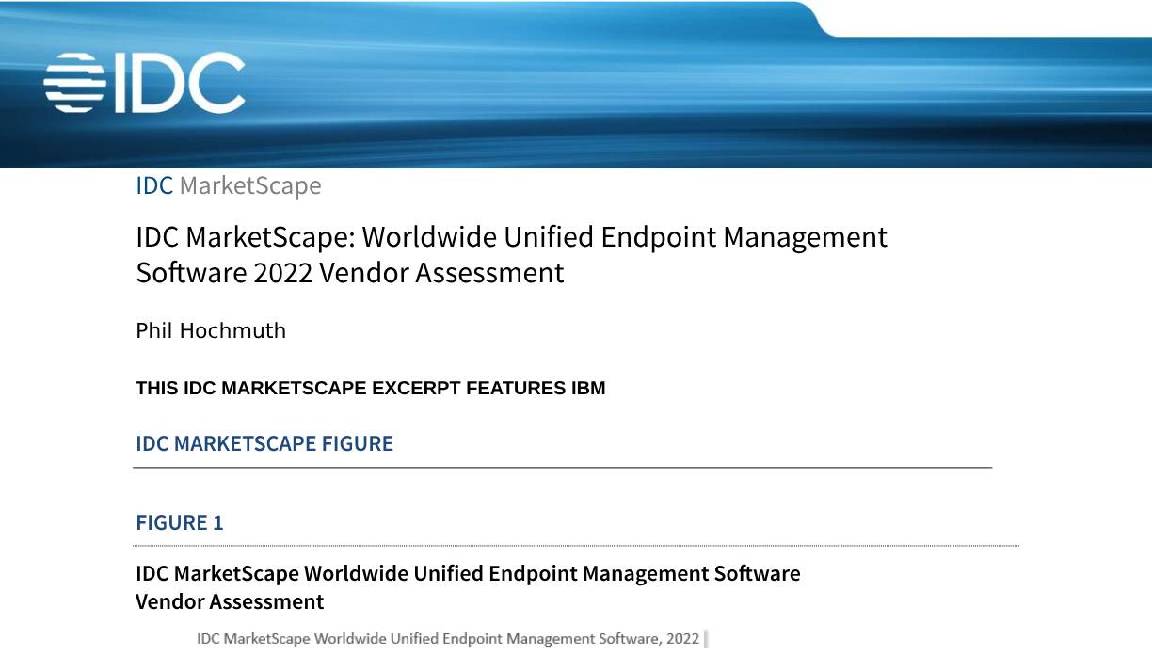 Unified endpoint management software vendor assessment
Unified endpoint management software vendor assessmentWhitepaper Make positive steps on your intelligent automation journey
By ITPro
-
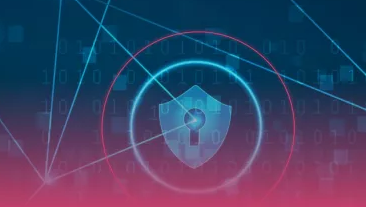 PowerEdge - Cyber resilient infrastructure for a Zero Trust world
PowerEdge - Cyber resilient infrastructure for a Zero Trust worldWhitepaper Combat threats with an in-depth security stance focused on data security
By ITPro